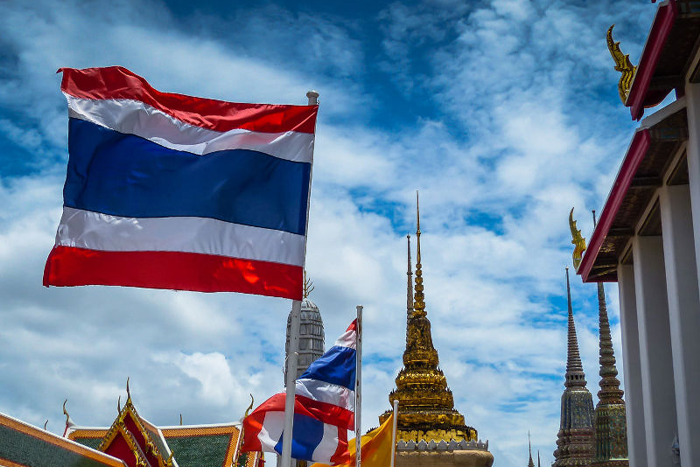March 2019 |
As a number of you have asked, I thought to share some observations about the upcoming election in Thailand, our region’s second largest economy. This is especially after the dramatic development when Princess Ubolratana briefly offered to serve as Prime Minister and the equally dramatic “No” delivered by her brother the King on Fri 8 February.
I was in Bangkok that same week and met various officials, advisors to senior office holders, experts and also some politicians. Drawing on my discussions with these various sources, I would like to share some observations with you as our member and friend. However, as the SIIA will continue to engage different stakeholders (Thailand is ASEAN Chairman this year), I have refrained from committing in writing too explicitly; this is especially concerning any remarks about the Royalty. The SIIA will organize a briefing in person in the March and that may be a more appropriate setting for a fuller exchange of views.
- Unusual Rules, Real Contest: Over its four plus years in power, the Prayuth administration has rejigged the electoral contest, and made new rules that can constrain the winner. Some rules are unusual – such as the mix of individual seats and party lists that will tend to favour smaller parties. Others, like the expanded role of the unelected Senate, explicitly institutionalize the continuing influence of the military and establishment. Given this, some believe PM Prayuth will be returned to office. There are some reasons however not to underestimate the depth of voter disenchantment. A survey by the National Institute of Development Administration in November 2018 found that 47.7% of respondents felt “nothing changed” under the junta, while 30.6% felt their economic situation had deteriorated. The Pheu Thai party remains popular, particularly in the northeast where a sizeable bloc of 116 seats are up for contest. A survey by Khon Kaen University on 9-10 February found 44.8% of respondents in the region still endorsed Pheu Thai. A strong election showing by pro-Thaksin parties cannot be ruled out. This will be a real contest, albeit with unusual rules.
- Royal Acceptance: There is the possibility of a result with no clear winner, or a result that not all will accept. See the candidacy of the Princess by a pro-Thaksin party (Thai Raksa Chart) in this context. This sent shock waves through the establishment; a number of experts believed that the King must have been consulted beforehand and that, if she was allowed to stand, she would have won and secured the premiership. As such, the King’s “No” statement — later that same day — was decisive. Overnight, Thai Raksa Chart’s fortunes underwent a complete reversal, and it could be dissolved for disrespecting the monarchy when the constitutional court delivers its verdict on 7 March. Besides Thai Raksa Chart, some think Pheu Thai could be incriminated and, separately, Future Forward leader Thanatorn Juangroongruangkit prosecuted. If so, the legitimacy of the election could be a flashpoint.
- Endorsement and Election: Thailand will hold not only the elections in the coming month, but the Royal coronation on 4-6 May. While the vote will be held before this date, it is likely that the next premier and government will not be finalized until afterwards. The King is not merely ceremonial; he will wield considerable influence on whether to accept the next prime minister. After all, the constitution dictates that the PM candidate must be endorsed by the King. It has also instituted new electoral rules. The next Prime Minister will be jointly elected from a pool of nominated candidates by the military-appointed, 250-seat senate and a 500-seat elected lower house through a simple majority, or 376 votes. Moreover, should the initial election outcome be indecisive, a joint petition submitted by a simple majority from both houses would allow external candidates to be elected to the Prime Ministership with a two-thirds majority.
- Efforts to Legitimise and Stabilise: The actions of the Prayuth administration can be reviewed in this context. Government spending and subsidies aimed towards the rural communities have increased to levels on par with or exceeding past Thaksin-associated governments. For example, a US$3.1 billion rural development programme called “Thai Niyom Yangyuen” was launched in 2018. These are more than temporary election-winning measures. There is also the 20-year national strategy that sets out to legally bind future governments to a strict policy framework. While the military has often intervened in politics, this points to a more consistent and institutionalised approach to guide and direct elected government. PM Prayuth and the military are positioning themselves as the preferred legitimate and stabilizing presence in Thai politics.
- Winning is Only the First Challenge: While many believe PM Prayuth can form the next government, this may require messy coalitions with minor parties. In such a scenario, some conjecture that the Democrat party, still led by former PM Abhisit Vejjajiva, may be a more acceptable choice. In such a scenario of a weak coalition, whoever wins will face difficulties in governing, especially without the strong powers under Article 44 of the interim constitution, and a more active Parliament with opposition voices. Equally, there are uncertainties if pro-Thaksin forces should win the most votes. Winning the elections is, as such, only the first challenge.
- A Pro-Active Royalty: In this context, some will note steps by the King has taken to consolidate his power and support. This includes privatising the assets of the Crown Property Bureau, estimated to be worth US$30-60 billion, and shifting military units around the country. The last years of the preceding monarch were marked by long periods of absence and ill health. There are reasons to expect that with a divided politics and a younger King, there will be a more pro-active royalty.
I hope this is of interest to you. I would be happy to hear your views.
![[Premium] Chairman’s Note (01/2019) – Thailand’s Upcoming Election](https://siiaonline.org/wp-content/uploads/2019/04/pexels-photo-460376.jpeg)



